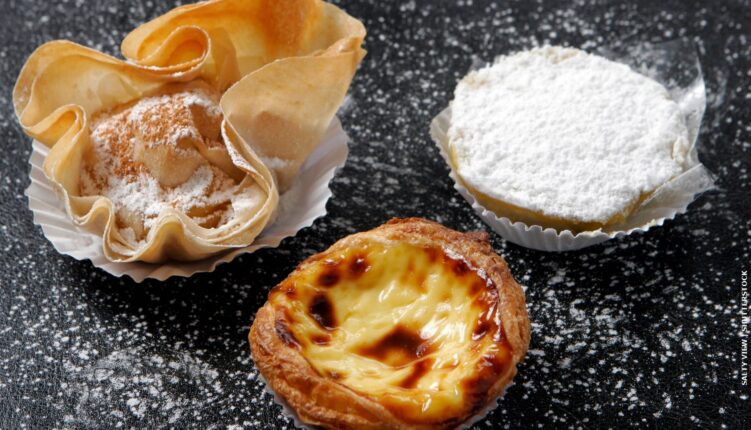What could be better, on a chilly winter’s day, than to sit down with a cup of tea or coffee accompanied with a delicious pastry.
By now you will be familiar with the Portuguese custard tart, pastel de nata, but there is so much more to sweet creations across the country.
Of course usual ingredients are used in many pastries however they are often made with biscuit, almond, pumpkin and carob. Visitors to Portugal will be able to find something that suits their palate.
With links to Madeira and Brazil, sugar was easily accessible in Portugal and this meant that there has been an abundance of sweet treats on offer for many years.
Traditionally, it was nuns and monks that provided these delicacies. But over time, artisan bakers added them to their wares for sale and now of course, most are available throughout the country.
Bola de Berlim
A firm favourite, and very popular on beaches during the summer months, is the bola de berlim.
Berlin balls, doughnuts to you and me, are believed to have been brought to Portugal by German Jews.
Berliner Pfannkucherare, usually enjoyed during carnival in Germany, are similar although generally they have a jam rather than custard filling.
Pastel de Tentúgal and Jesuitas
Many Portuguese pastries are based on a very thin layer, or layers, of dough which are filled.
Such pastries include the pastel de Tentúgal and Jesuitas.
The first, pastel de Tentúgal, is said to have been originally baked by the nuns at the Convento de Nossa Senhora da Natividade in Tentúgal (just over 450kms from the Algarve) in the 16th century.
Jesuitas again have a religious heritage, with triangular-shaped puff pastry at their core covered in a frosting.
The secret to eating these crumbly pastries is to split one in half and turn it inside out, so the frosting on the top becomes the filling.
With so many pastries available we think the best idea would be for you to visit and try them for yourself, enjoy a bola de Berlim on the beach and a Jesuita for tea.
Now, how about a brigadeiro or queijada? Not sure what they are? When you’re next visiting Portugal pop in a café and ask for one. Delicious.


2 thoughts on “Sweet creations – Portugal’s wealth of pastries”